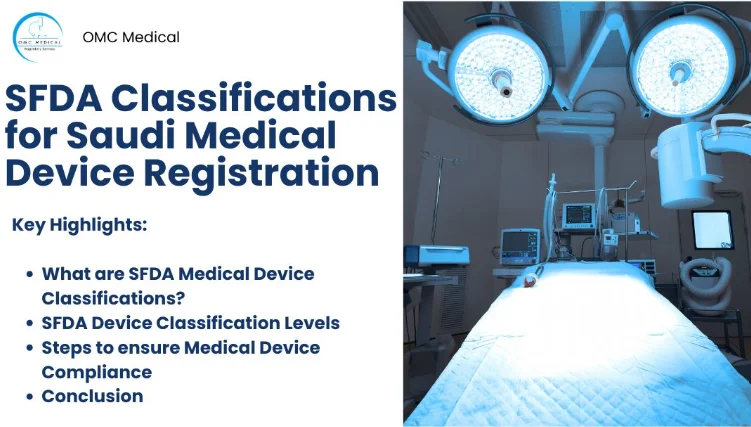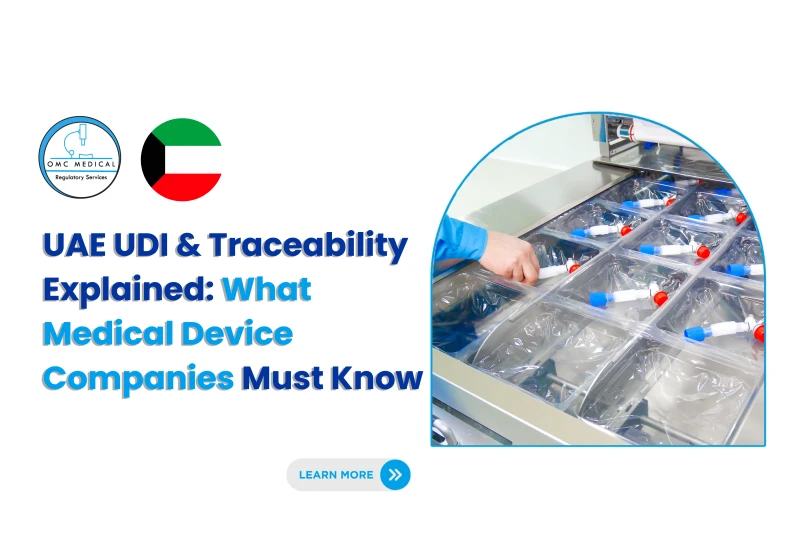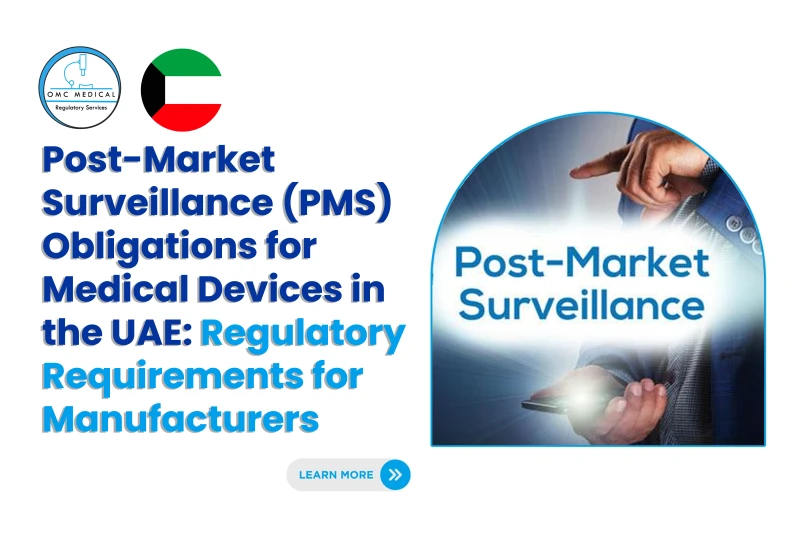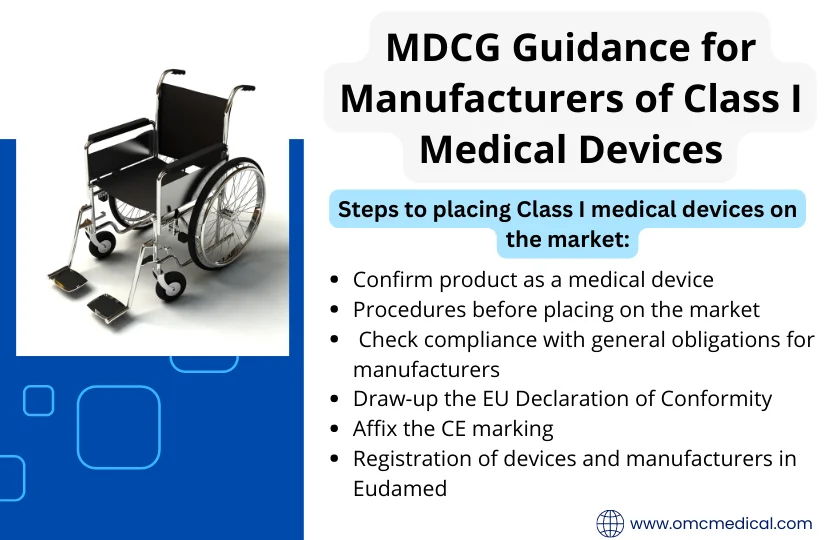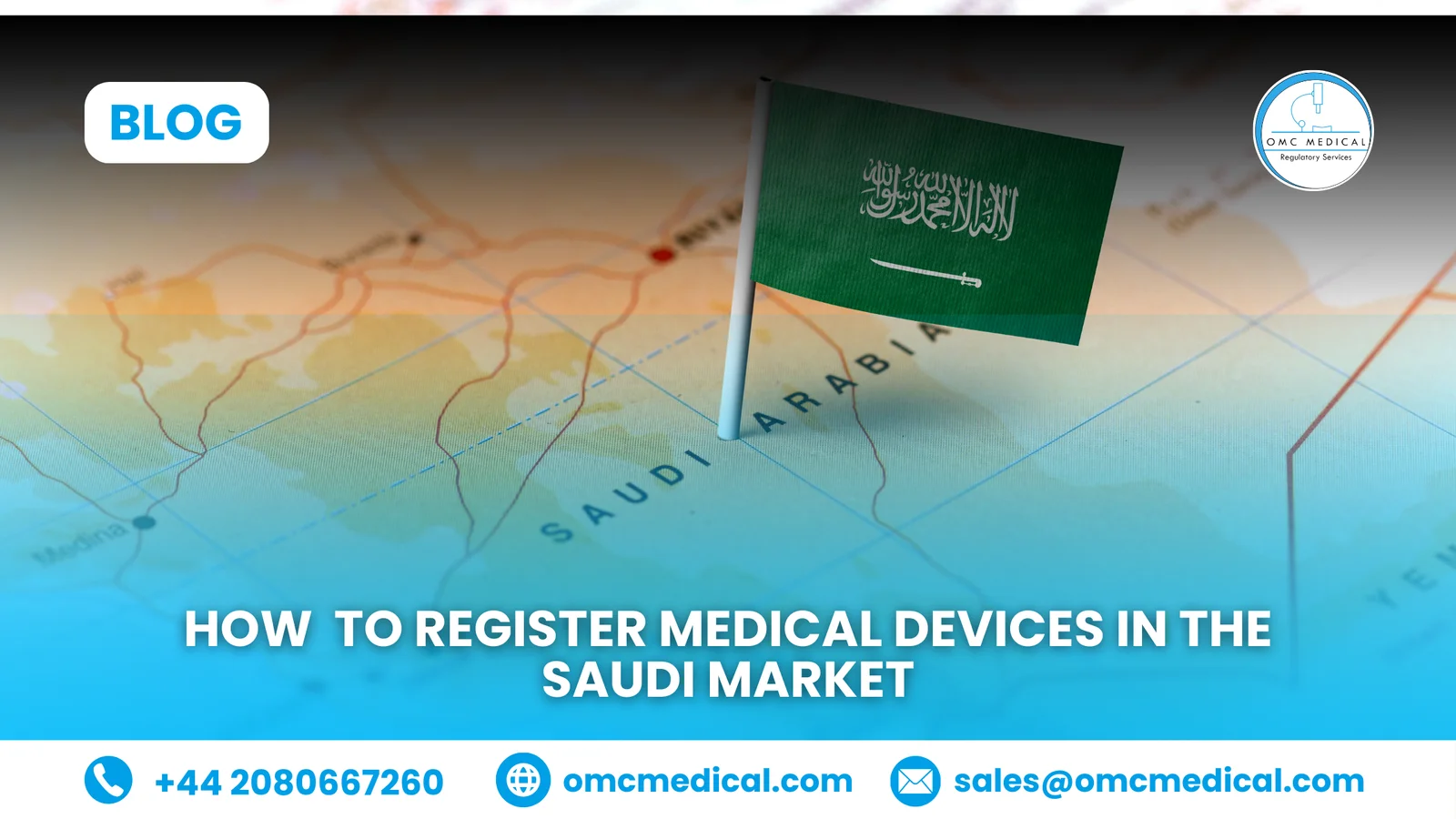Bringing a medical device to market in Saudi Arabia involves more than just innovation; it requires a clear understanding of the Saudi Food and Drug Authority (SFDA) regulations. In this blog, we will cover the SFDA classification system, the process of obtaining Medical Device Marketing Authorization (MDMA), ensuring compliance with Saudi Arabia medical device regulations and how the Medical Device Establishment License (MDEL) can facilitate your entry into the Saudi market.
The SFDA is responsible for regulating medical devices in Saudi Arabia, ensuring that products meet international safety and quality standards. Their classification system divides devices based on the level of risk, and this classification directly impacts the regulatory requirements. Whether your product is a simple diagnostic tool or a life-supporting implant, understanding SFDA classifications is essential for navigating the approval process efficiently.
Let’s get started!
What is SFDA Classification?
The SFDA Classification System is a regulatory framework used by the Saudi Food and Drug Authority (SFDA) to categorize medical devices based on their risk to patient safety. This classification determines the level of scrutiny a device will undergo during the approval process, including the testing and documentation requirements. The goal is to ensure that medical devices are safe, effective, and meet the required standards before being marketed in Saudi Arabia.
Ready to Streamline Your Regulatory Compliance?
Join hundreds of companies who trust OMC Medical for their regulatory needs.
Get expert guidance and ensure compliance across all markets.
Call Now +44 208 066 7260
Understanding SFDA Classifications for Medical Devices
The SFDA uses a three-tier classification system based on the risk associated with a medical device. The classification determines the extent of testing, documentation required, and the approval process for the device. Here’s a breakdown of the classification system:
- Class I (Low Risk): These devices pose minimal risk to patients and include items like bandages, gloves, or simple diagnostic tools. The approval process for Class I devices is relatively straightforward and generally requires documentation to prove compliance with safety standards.
- Class II (Medium Risk): Devices that present moderate risks, such as diagnostic imaging equipment, infusion pumps, or surgical tools, fall into this category. For Class II devices, more extensive documentation is needed, including performance data and possibly clinical evaluations.
- Class III (High Risk): These devices, such as pacemakers, defibrillators, or artificial joints, are critical for patient safety. The SFDA requires the most detailed evaluation for Class III devices, including clinical trial data and thorough testing to ensure safety and reliability.
How are Devices Classified?
To determine the classification of a medical device, the manufacturer must evaluate the following:
- Intended Use: What is the primary purpose of the device? For example, diagnostic versus therapeutic devices.
- Risk Level: What harm could result from the device malfunctioning?
- Invasiveness: Does the device penetrate the body, and if so, to what degree?
- Duration of Use: Is the device used transiently (<60 minutes), short-term (<30 days), or long-term (>30 days)?
Manufacturers can reference the SFDA guidelines for medical device registration to identify the correct classification.
In Vitro Diagnostic (IVD) Medical Devices
IVD devices follow a similar risk-based classification system but focus on the potential risks to public health and individual users. The levels are:
- Class A: Low individual and public health risks
- Class B: Moderate individual risk, low public health risk
- Class C: High individual risk, moderate public health risk
- Class D: High individual and public health risks
MDMA Certificate: Key to Marketing Your Medical Device in Saudi Arabia
Before a medical device can be sold in Saudi Arabia, it must receive Medical Device Marketing Authorization (MDMA) from the SFDA. This certificate is the official approval required to market the device in the Kingdom. The MDMA ensures that the product complies with SFDA regulations and is deemed safe for use in the local market.
To obtain the MDMA, manufacturers must submit various documents, including technical files, clinical data (for higher-risk devices), and evidence of compliance with international standards. The SFDA evaluates the device’s design, intended use, and performance data to ensure that it meets the safety and quality criteria. Without the MDMA Certificate, marketing your device in Saudi Arabia is not possible.
MDEL SFDA: The Medical Device Establishment License
In addition to obtaining the MDMA for your product, companies must secure a Medical Device Establishment License (MDEL) to operate in Saudi Arabia. MDEL is necessary for businesses involved in distributing, marketing, or importing medical devices within the Kingdom.
MDEL ensures that businesses meet SFDA’s regulatory standards for operations, including storage and distribution practices. Companies applying for MDEL must provide evidence of their facilities and operational infrastructure. Without the MDEL, companies cannot legally distribute or market medical devices in Saudi Arabia.
4 Steps to ensure Medical Device Compliance
- Appoint an Authorized Representative: If you’re a foreign manufacturer, appoint a local representative to navigate medical device regulatory compliance in Saudi Arabia.
- Compile Technical Documentation: Ensure detailed technical files align with ISO 13485 certification in Saudi Arabia and SFDA’s essential principles.
- Use Decision Trees: The SFDA provides classification charts to guide manufacturers in identifying the appropriate risk class.
- Submit via the GHAD System: Register your device and apply for Medical Device Market Authorization in Saudi Arabia through SFDA’s GHAD portal.
The Importance of Accurate SFDA Classifications and Compliance
Correctly classifying your medical device, along with obtaining the MDMA and MDEL, is crucial for avoiding delays and regulatory issues. Misclassification can lead to additional testing, longer review processes, or even product rejection.
By adhering to the SFDA’s guidelines from the start, manufacturers can ensure faster approval, smoother market access, and a successful product launch. This proactive approach helps avoid costly setbacks and ensures a more seamless entry into one of the largest and most dynamic healthcare markets in the Middle East.
Conclusion
Navigating the SFDA regulations for medical device registration in Saudi Arabia can be complex, but OMC Medical is here to help. We specialize in Medical Device Registration, Product Classification, Authorized Representation, and Quality Assurance, ensuring compliance with SFDA requirements.
Our expert team also supports Post Market Vigilance and Software as a Medical Device compliance, helping you maintain ongoing regulatory adherence. With a proven track record in the industry, we offer efficient solutions to guide you through the process.
Book your free consultation today and let us help you navigate the SFDA requirements with ease.

